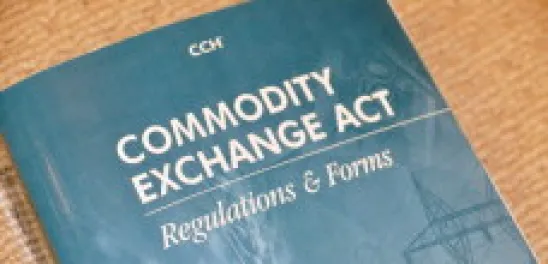The regulatory landscape surrounding cryptocurrency continues to evolve. Most of the activity to date has involved regulatory enforcement actions brought by the Securities and Exchange Commission (“SEC”) and Commodity Futures Trading Commission (“CFTC”) and focused primarily on exposing fraud rather than providing guidance. Some people have questioned whether the CFTC has jurisdiction in this space. A federal district court in New York has ruled that they do.
As has been the case with many of the lawsuits that have been filed relating to crypto, the focus of the complaint is allegedly fraudulent behavior. The CFTC alleged that Coin Drop Markets “operated a deceptive and fraudulent virtual currency scheme . . . for purported virtual currency trading advice” and “for virtual currency purchases and trading . . . and simply misappropriated [investor] funds.” CFTC’s complaint asks for injunctive relief, monetary penalties, and restitution of funds received in violation of the Commodity Exchange Act (“CEA”).
In defending against the suit, the defendant filed a motion to dismiss, alleging that the CFTC did not have jurisdiction. The court summarized:
The primary issue raised at the outset of this litigation is whether CFTC has standing to sue defendants on the theory that they have violated the CEA. Title 7 U.S.C. § 1. Presented are two questions that determine the plaintiff’s standing: (1) whether virtual currency may be regulated by the CFTC as a commodity; and (2) whether the amendments to the CEA under the Dodd-Frank Act permit the CFTC to exercise its jurisdiction over fraud that does not directly involve the sale of futures or derivative contracts.
The court answered in the affirmative to both questions, stating: that “a ‘commodity’ encompasses virtual currency both in economic function and in the language of the statute.” Title 7 U.S.C. § 1(a)(9). (The CEA defines “commodity” as agricultural products and “all other goods and articles . . . and all services, rights, and interests . . . in which contracts for future delivery are presently or in the future dealt in.”). The court went further to say that the CFTC has authority over fraudulent and manipulative behavior in derivative markets, as well as underlying spot markets. See Title 7 U.S.C. § 9(1). As such, the CFTC may bring actions for fraud related to virtual currencies sold in interstate commerce. See Title 17 C.F.R. § 180.1.
The Court added: “Until Congress clarifies the matter, the CFTC has concurrent authority, along with other state and federal administrative agencies, and civil and criminal courts, over dealings in virtual currency. An important nationally and internationally traded commodity, virtual currency is tendered for payment for debts, although, unlike United States currency, it is not legal tender that must be accepted.”




 />i
/>i

